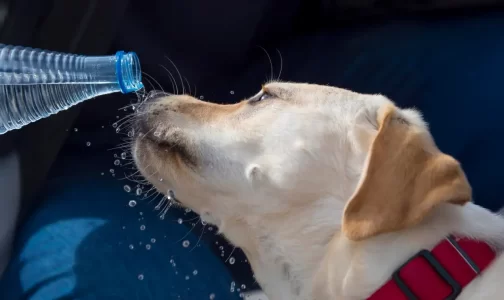
The Importance of Hydration in Pets: Signs of Dehydration to Watch For
Proper hydration is essential for the overall health and well-being of pets. Just like humans, animals require adequate water intake to maintain bodily functions, regulate temperature, and prevent health complications. Dehydration can lead to severe issues, including organ failure and even death if not addressed promptly. This article will explore the importance of hydration in pets, the signs of dehydration, and ways to ensure they receive enough water daily.
Why Hydration Matters for Pets
Water plays a crucial role in a pet’s body, contributing to digestion, circulation, and temperature regulation. It also helps flush out toxins and supports joint lubrication, which is particularly important for active or older pets. A lack of water can result in decreased energy levels, difficulty in bodily functions, and susceptibility to illnesses. Maintaining proper hydration levels ensures that pets remain healthy and active.
Pet owners should be aware of common dehydration symptoms to address the issue before it becomes serious. Some key signs include:
Lethargy: A dehydrated pet may appear weak or less active than usual.
Loss of Appetite: Pets that are not drinking enough water may also refuse food.
Dry Nose and Gums: Moist gums and a wet nose are indicators of proper hydration. Dryness can signal dehydration.
Sunken Eyes: Dehydration may cause a pet’s eyes to appear dull or sunken.
Excessive Panting: While panting is normal in dogs, excessive panting without exertion can be a sign of dehydration.
Skin Elasticity Test: Gently pinch the skin on the back of your pet’s neck. If it does not quickly return to its normal position, dehydration may be present.
Signs of Dehydration in Pets
Encouraging Pets to Drink More Water
Ensuring that pets stay hydrated requires proactive measures from pet owners. Here are some effective strategies:
Provide Fresh Water: Keep a bowl of clean, fresh water accessible at all times and change it regularly.
Use Multiple Water Stations: Place water bowls in different areas of the home to encourage drinking.
Try a Pet Water Fountain: Many pets prefer running water, making pet fountains a great investment.
Add Water to Food: Mixing a little water with dry kibble or switching to wet food can help increase hydration levels.
Flavor the Water: Adding a small amount of low-sodium broth can make water more appealing to pets.
Monitor Water Intake: Keep track of how much water your pet drinks daily to detect any changes in consumption.
Conclusion
Hydration is a fundamental aspect of a pet’s health that should not be overlooked. By recognizing the signs of dehydration and taking preventive measures, pet owners can ensure their furry companions remain healthy and happy. If dehydration symptoms persist despite efforts to increase water intake, seeking veterinary assistance is crucial to prevent serious health complications.
You can have more information, call us and speek to our vets on 045540701 – 0522047841
